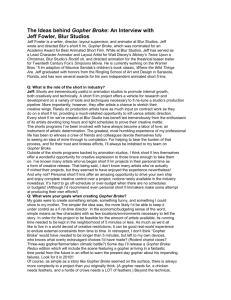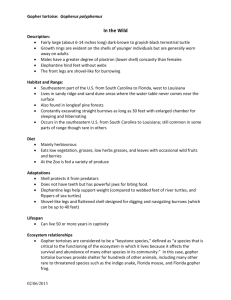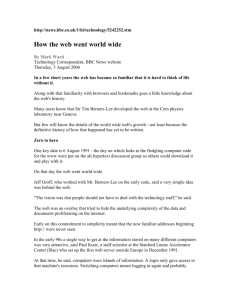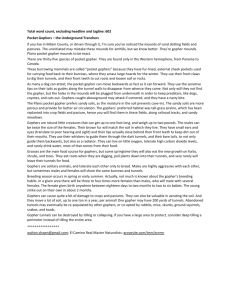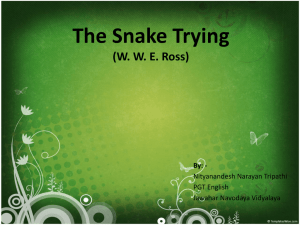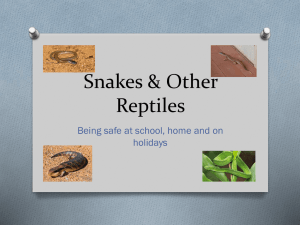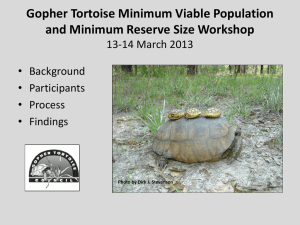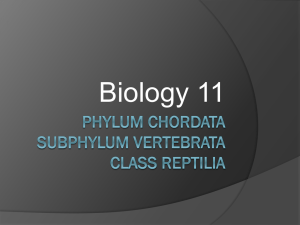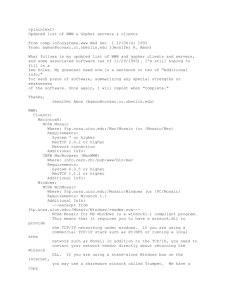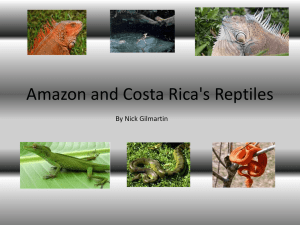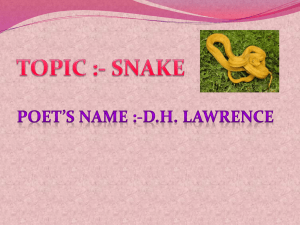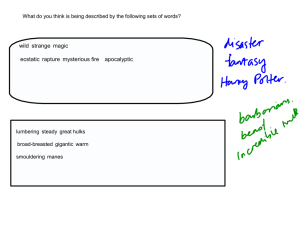PowerPoint - TheWildlifePortal.tv
advertisement
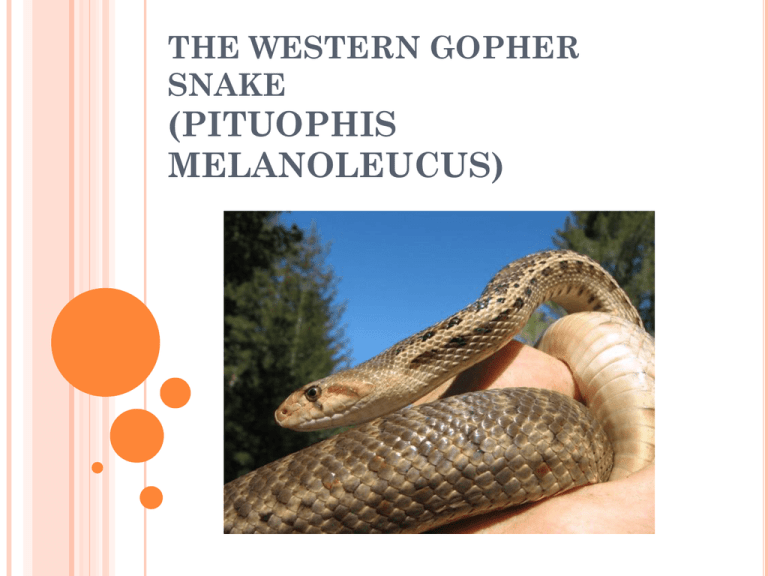
THE WESTERN GOPHER SNAKE (PITUOPHIS MELANOLEUCUS) WHAT DO THEY LOOK LIKE? A goher snake can look like: a creamy-yellow a green-gray a tan And have: large black, brown or reddish blotches on their back smaller blotches along their sides. Some have a dark line between eyes and another from behind the eyes to the angle of the jaw. * Some snakes have been found without blotches. GOPHER SNAKE ATTRIBUTES The gopher snake can grow anywhere from 36 inches to as long as 96 inches. This means the gopher snake can be 3-8 feet in length! The gopher snake can live up to 20 years of age. They shed their skin every four to five weeks! GEOGRAPHY OF THE GOPHER SNAKE Found from coast to coast, these snakes can mainly be found in all 4 deserts of the southwest. They have been found living in elevations as high as 8000 ft. We can find Gopher Snakes all throughout the shaded region (RED) on this map! Although this is a big area, the YELLOW region is NOT home to the gopher snake. HABITAT OF THE GOPHER SNAKE Although the gopher snake prefers to live in grasslands and open bush areas, they have been found in desert flats, coastal dunes and coniferous forests. THE DAILY DIET The gopher snakes diet: small birds and their young small to medium rodents some eggs and other reptiles. * The gopher snake usually defeats its prey with constriction. BEHAVIOR AND ATTITUDE The gopher snakes: are slow moving and climbs tree's very well. investigate burrows and rocky crevices for curiosity and prey. will change its activities during the high heat in summer, often becoming nocturnal. like sunning on rocks or drawing in heat from the pavements to ready themselves for active nights. hibernates in winter in communal dens, usually sharing with other rattlesnakes and whipsnakes. *When alarmed the gopher snake will coil into an S-shape, hiss loudly, and vibrate its tail much like the rattlesnake. Click here for Gopher Snake sound… OFFSPRING For the gopher snake, breeding occurs March to May. 2 to 22 eggs will be produced and laid anywhere from June through August. The incubation period will usually last anywhere from 50 to 85 days and will hatch in the late fall. THREATS/ DANGERS The non venomous gopher snakes can become prey to Red-tailed hawks, Kit foxes, and coyotes

